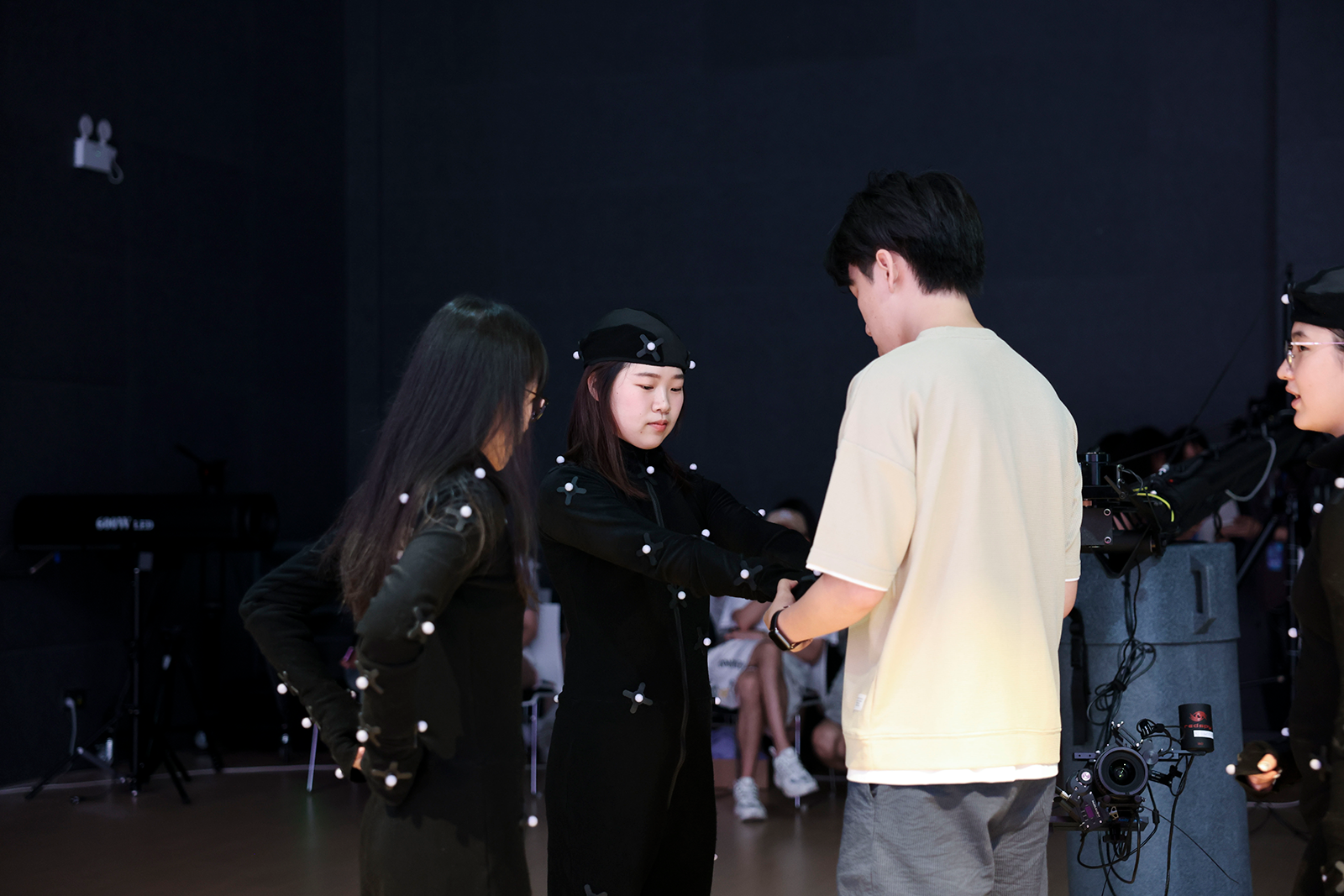
In early July, the 2024 “Design the Future” International Workshop, hosted by SFD, successfully concluded at the Zhuhai campus. Focusing on sustainable innovation, this workshop aimed to explore cutting-edge trends in design and provide a platform for exchange and collaboration among designers, scholars, and students from China and South Korea. More than 20 participants, including students, faculty, and designers from various disciplines, engaged deeply in the workshop, fostering mutual understanding and collaboration through a variety of activities and interactions.
During the opening ceremony, Professor Gao Peng, Dean of SFD, expressed his hopes that this workshop would not only offer learning and practical opportunities for participants but also, through cross-cultural exchange, allow young designers and scholars from diverse cultural and professional backgrounds to share their understanding of each other's cultures and design practices.
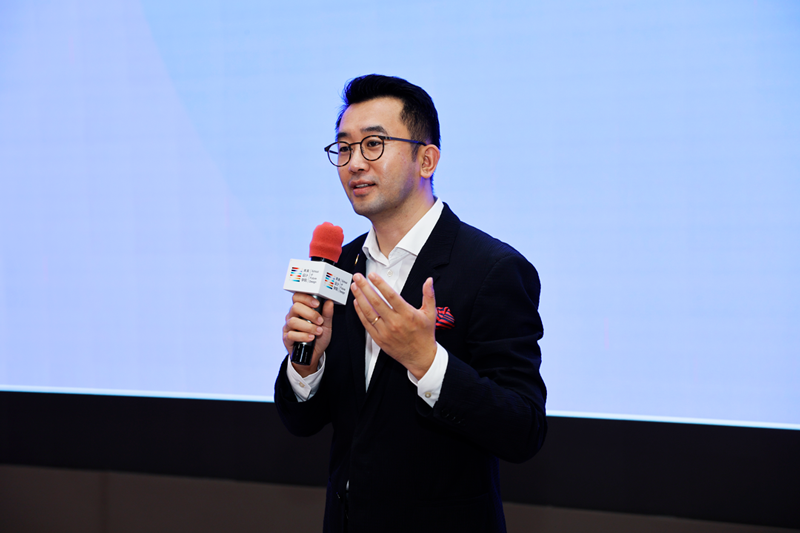
Remarks by Gao Peng, Dean of SFD
Specialized Presentations
Sustainable Innovation
In the workshop, Mr Park Hae-Rim from Konkuk University in South Korea delivered a specialized presentation titled “Industrial Design Towards Sustainability.” Drawing from his extensive industry experience and several successful business cases, Mr Park emphasized the importance of sustainable business practices. He discussed the development of eco-friendly products and corporate social responsibility with the participants, sharing insights on how design innovation and technological transformation can address social issues and achieve sustainable business development.
Material Foresigh
Mr Oh In-Kyun from Konkuk University and Mr Wang Yunfei from SFD led a session on material design trends. Through the analysis of real-world design cases, they helped participants understand how to utilize new materials to achieve breakthrough design innovations. The interactive session encouraged participants to ask questions and engage in hands-on activities, deepening their appreciation of CMF (Color, Material, and Finishing) design in commercial applications.
Interactive Experience
Mr Seungwoo Je from Southern University of Science and Technology shared his team's research on designing AR/VR/MR systems. By developing interactive multisensory systems that blend the physical and virtual worlds, his team offers users immersive experiences. Mr Seungwoo introduced participants to the research on interactive interfaces from various perspectives, including hardware and software, user-computer interaction, and the integration of virtual and real worlds. Mr Li Wei from SFD guided participants through the school's virtual production studio, providing a hands-on demonstration that enhanced their understanding of the wide applications of interactive experience technologies and the possibilities brought by technological innovation in design.
Brand Building
Mr Lee Sihoon from Keimyung University in South Korea conducted a lecture titled “User Experience and Brand Strategy,” focusing on design methods centered around user experience in brand building. He discussed how product or service innovation can drive continuous improvement in brand experience. Ms Zhou Yan from SFD shared her rich experience in local social projects, analyzing key points in brand building from a cultural perspective and engaging in interactive discussions with participants.
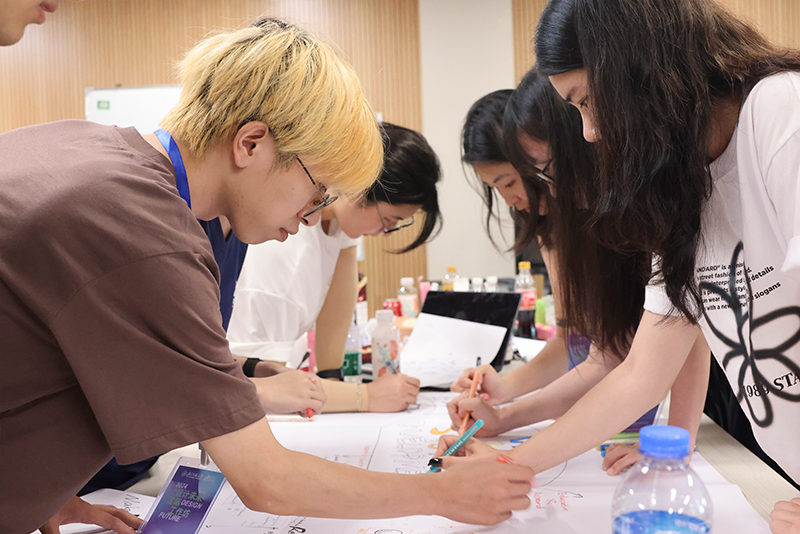
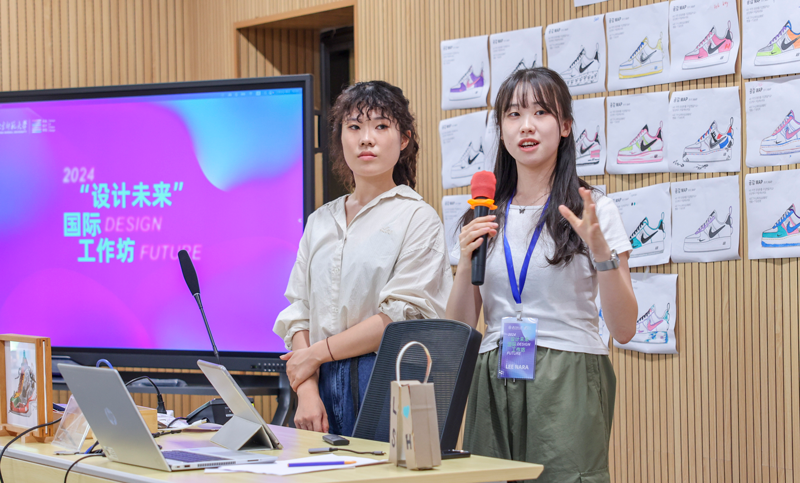
Practical Sessions
During the workshop, participants from different countries, schools, and professional backgrounds collaborated in groups to complete practical projects. Each team applied the knowledge and skills acquired during the courses to develop solutions and put their ideas into practice.
Through these practical sessions, participants not only deepened their understanding of sustainable design concepts but also validated the application value of the knowledge they had learned. Team members actively communicated, leveraging their respective expertise to solve real-world problems, focusing on brand positioning, brand strategy, product design, and interactive experiences to create brands aligned with sustainable innovation principles. The workshop’s emphasis on practical learning not only enhanced participants’ professional skills and innovative thinking but also provided valuable cross-cultural team collaboration experiences.
Field Visits
In addition to on-campus learning, the workshop also included a series of carefully curated field visits. Participants visited local enterprises and cultural sites in Zhuhai, gaining firsthand experience of the region’s unique design and business ecosystem.
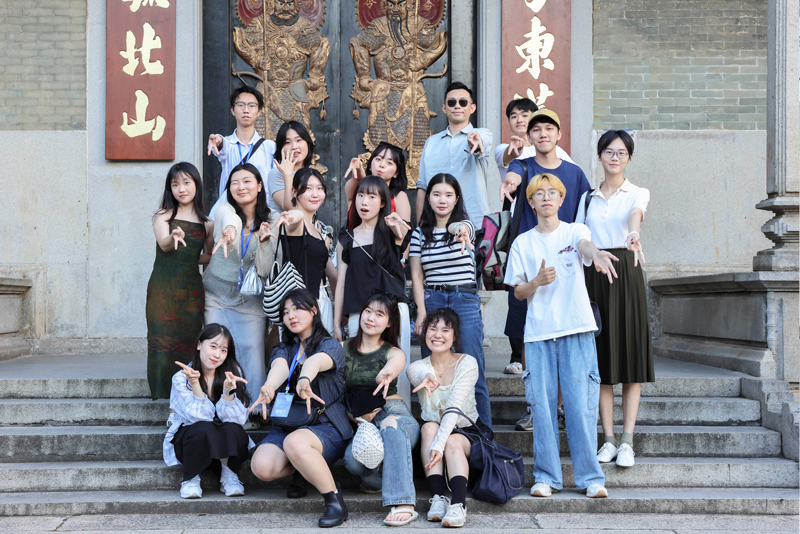
During the workshop, participants toured Sividon Networks, where they engaged in on-site exploration and gained insights into successful cases of design innovation empowering cultural communication and commercial value through emerging technologies. This visit deepened their understanding of Zhuhai’s corporate innovation concepts and technological advancements.
The participants also visited the Zhuhai Beishan Creative District, where they explored historical village relics, appreciated Zhuhai's rich historical and cultural heritage, and enhanced their understanding of the local customs. These field visits facilitated exchanges between Chinese and Korean participants, fostering friendships and deepening mutual understanding between the two groups.
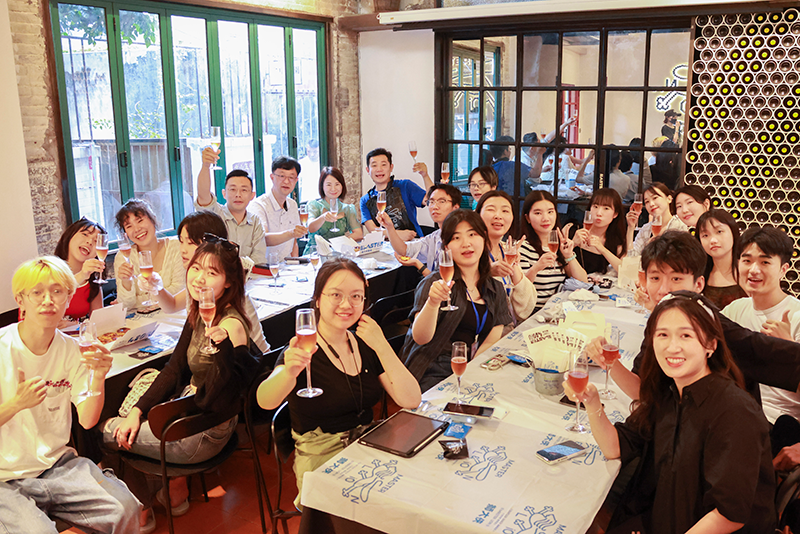
The “Design the Future” International Workshop provided an effective platform for international exchange and collaboration, enabling students and faculty to engage in diverse collaborative activities, active discussions, and cutting-edge theoretical and practical learning. This workshop offered participants a valuable opportunity to explore the frontiers of design together.

